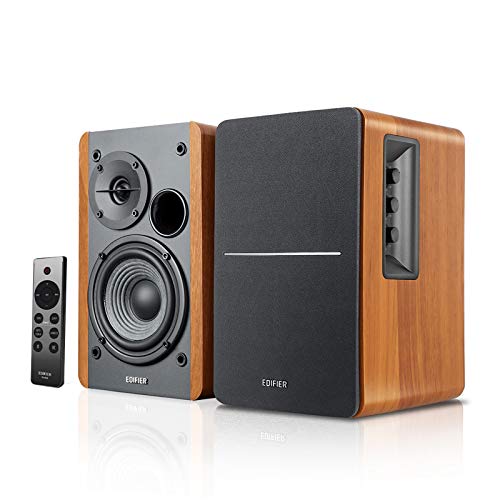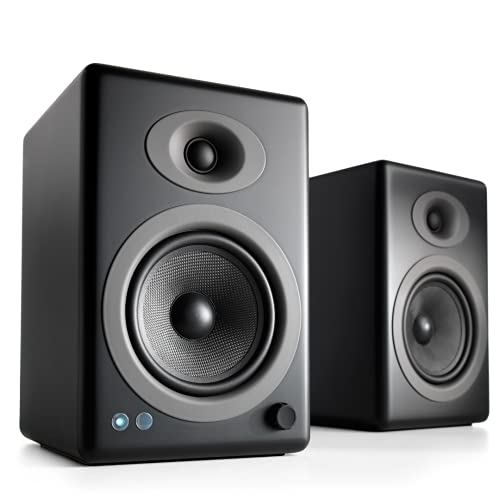Top 9 Best Speaker For Classical Music in 2024 - Budget and Premium
John Campbell (Jax) Apr 26, 2024 12:02 PM
Are you shopping for a new product and aren't sure which one is the best? Look no further! This blog post will help you figure out which product is perfect for you. We'll provide a list of the best speaker for classical musics on the market, as well as a few tips to help you make your decision. So, what are you waiting for? Start reading!

Buyer's Guide
What to look for when buying a speaker for classical music?

1. Frequency Response
The frequency response is the range of frequencies that a speaker can reproduce. The human ear can hear frequencies between 20 Hz and 20,000 Hz, so you will want a speaker with a frequency response that falls within this range. Additionally, some speakers are designed to reproduce specific ranges of frequencies more accurately than others. For example, some speakers may have a wider frequency response but may not reproduce lower frequencies as accurately.
2. Sensitivity
Sensitivity is a measure of how efficiently a speaker converts power into sound. The higher the sensitivity, the less power the speaker will need to produce the same level of sound as a speaker with a lower sensitivity. Sensitivity is measured in decibels (dB) and is typically between 85 dB and 95 dB for most home speakers.
3. Impedance
Impedance is a measure of how much electrical resistance a speaker has. It is measured in ohms and is typically between 4 ohms and 8 ohms for most home speakers. A lower impedance means that the speaker will be easier to drive and will require less power from the amplifier.
4. Driver Size
The driver is the part of the speaker that actually produces the sound. The size of the driver will determine how much air the speaker can move and how much bass it can produce. Larger drivers usually result in better bass performance but may not be as accurate in reproducing higher frequencies.
5. Crossover Frequency
The crossover frequency is the point at which the signal is divided between the woofer and the tweeter. The woofer is responsible for reproducing lower frequencies while the tweeter reproduces higher frequencies. Most home speakers have a crossover frequency between 2,000 Hz and 3,000 Hz
- MT Score9.8
MT Score is a ranking system developed by Mytheater.org. MT Score has no relationship or impact from any manufacturers or sales agent websites. Learn more
- BrandWharfedale
- MT Score9.6
MT Score is a ranking system developed by Mytheater.org. MT Score has no relationship or impact from any manufacturers or sales agent websites. Learn more
- BrandREL Acoustics
- Prime
- MT Score9.4
MT Score is a ranking system developed by Mytheater.org. MT Score has no relationship or impact from any manufacturers or sales agent websites. Learn more
- BrandKlipsch
- MT Score9.4
MT Score is a ranking system developed by Mytheater.org. MT Score has no relationship or impact from any manufacturers or sales agent websites. Learn more
- BrandEdifier
- Prime
- MT Score9.2
MT Score is a ranking system developed by Mytheater.org. MT Score has no relationship or impact from any manufacturers or sales agent websites. Learn more
- BrandEdifier
- MT Score9.2
MT Score is a ranking system developed by Mytheater.org. MT Score has no relationship or impact from any manufacturers or sales agent websites. Learn more
- BrandDOSS
- Prime
- MT Score9.0
MT Score is a ranking system developed by Mytheater.org. MT Score has no relationship or impact from any manufacturers or sales agent websites. Learn more
- BrandKlipsch
- Prime
- MT Score9.0
MT Score is a ranking system developed by Mytheater.org. MT Score has no relationship or impact from any manufacturers or sales agent websites. Learn more
- BrandAudioengine
- Prime
- MT Score9.0
MT Score is a ranking system developed by Mytheater.org. MT Score has no relationship or impact from any manufacturers or sales agent websites. Learn more
- BrandAudioengine
Last update on 2024-04-26 / Affiliate links / Images, Product Titles, and Product Highlights from Amazon Product Advertising API
1. How many watts do I need?
The number of watts you need depends on the size of the room and the level of volume you want to achieve. A general rule of thumb is that you need around 10 watts per square foot of room. So, for a small room that is 10x10 feet, you would need 100 watts. For a larger room that is 20x20 feet, you would need 400 watts.
2. What is the difference between a bookshelf speaker and a floor standing speaker?
Bookshelf speakers are smaller than floor standing speakers and are designed to be placed on a shelf or another surface. Floor standing speakers are larger and are designed to be placed on the floor. Both types of speakers can produce great sound quality, but floor standing speakers typically have better bass response due to their larger size.
3. What is the difference between a passive speaker and an active speaker?
A passive speaker is a speaker that does not have its own built-in amplifier. An active speaker is a speaker that has its own built-in amplifier. Active speakers are typically more expensive than passive speakers, but they offer the benefit of not needing an external amplifier, which can save space and money.
4. Do I need a subwoofer?
A subwoofer is a type of speaker that is designed to reproduce low frequency sounds, such as bass notes. If you are looking for deep, rich bass tones, then you will need a subwoofer. However, if you are just looking for general sound reproduction, then a subwoofer is not necessary.
5. What type of speaker cables do I need?
The type of speaker cables you need depends on the type of speakers you have. If you have passive speakers, then you will need standard speaker wire. If you have active speakers, then you will need XLR or TRS cables.
So, if you're looking for the best speaker system to enhance your classical music listening experience at home, we've got just the thing. Check out our reviews of the top five systems and then shop now to get yourself set up with the perfect audio equipment. You'll be able to enjoy your favorite pieces in no time!
.png)









.jpg)











